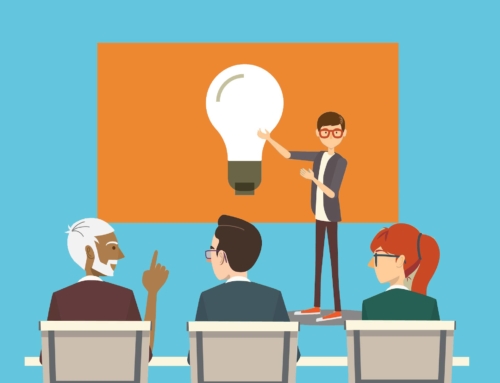Researchers have been studying the factors that get us to say “yes” for over sixty years. The surprising results are revealed by Dr. Robert Cialdini in several of his books and videos. Here are the secrets that he reveals.
The facts show that, as much as we would like to think that our decisions are guided by rational reasoning, it turns out that it isn’t always the case. Quite often in fact, we use shortcuts to make decisions. There are six commonly used shortcuts that researchers identified, which when used in an ethical manner, can significantly increase our ability to persuade.
- Reciprocity
- Scarcity
- Authority
- Consistency
- Liking
- Consensus
Reciprocity
When we receive an unsolicited gift from someone we feel obligated to give them something back. For example, if your neighbor shovels the snow off your sidewalk without being asked to do it, you are more likely to loan them your ladder when they ask.
Another, very common example is in a restaurant. When the waiter brings the mint or fortune cookie with your bill. Research found that simply giving the diner a single mint increased the tip given to the waiter by 3%. In addition, when two mints are given the tip increased to 14%.
The key to using the principle of reciprocation, according to Cialdini, is to be the first to give and insure that what you give is personalized and unexpected.
Scarcity
Put simply, the more rare something is, the more people want it. A good example of this is when British Airway announced the end to their London/New York Condord flight, the next day sales exploded. The point here is that nothing about the flight had changed except that it had simply become a scarce resource, causing people to want it more.
To apply this principle you must not only point out the benefits of your product, you must tell them what’s unique about it and what they stand to lose if they don’t accept your proposal.
Authority
People tend to follow the advice of credible experts. Studies show that people are more likely to comply with recommendations of medical professionals when their credentials are prominently displayed on the wall of their office. Likewise, we are more likely to give change for a parking meter to someone in a uniform, then someone in plain clothes.
The take-a-way here is the importance of conveying to others, your knowledge and authority before you try to influence them. While we can’t go around telling others how knowledgeable we are, we can have someone else do it. And science shows that it doesn’t even matter if that person directly benefits from the introduction. For example a receptionist at a realtor’s office simply described the agent’s 20 years of experience in selling properties, to those interested in selling their property which resulted in a 20% increase in appointments and a 15% increase in completed contracts. This is a small change that was both ethical and costless.
Consistency
People try to be consistent with things they have previously said or done. By looking for and asking for small initial commitments, the principle of consistency can be activated.
One of the most famous studies researchers found that most people were unwilling to place a big wooden sign on their lawn to support a safe driving campaign in their neighborhood. But in a comparable neighborhood, close by, four times as many homeowners were willing to install this billboard. This happened because previously participants were asked to put a small postcard in their window supporting the safety campaign. That small commitment led to a 400% increase in willingness to place the sign in their yard.
To activate the consistency principle it’s important to get voluntary public commitments, preferably in writing.
Liking
People are more likely to say yes to people they like. There are three major factors that cause people to like us.
- People who are similar to us
- People who pay us compliments
- People who cooperate with us
Studies found that when negotiating, by simply spending time finding out what you have in common and sharing personal information, 90% of participants were able to come to a successful agreement. Participants who didn’t first share this information came to an agreement only 55% of the time. In addition, those that first found common ground completed agreements that were worth 18% more compared to individuals that didn’t first get to know the other party.
The moral here is to make sure you talk about things you have in common and find opportunities to give genuine complements, before you start discussing business.
Consensus
Especially when uncertain, people will look to the actions of others to determine what to do. If you have stayed in a hotel you have probably noticed the card in the bathroom asking you to reuse your towel instead of having it laundered after a single use. When the card simply states the benefits of reuse and the impact on the environment there is a 35% compliance rate. When the principle of consensus was incorporated in the message, by saying that 75% of the previous guests staying in this room reused their towels, an additional 33% increase in towel reuse was accomplished.
By using the principle of consensus and the science behind it, we can boost effectiveness by pointing out what people who are similar are already doing.
These scientifically validated principles are ethical and often free. By incorporating these small practical practices, we can significantly increase our power to persuade.
References:
Dr. Robert Cialdini (2012) https://www.influenceatwork.com/principles-of-persuasion/
 Lennis Mathews (@Lennis_Mathews) is a creative professional who designs seamless customer experiences across multiple platforms. Translating complex information and data into compelling visual forms, both print and digital. She is also pursuing a Master’s degree in Information Design and Strategy at Northwestern University.
Lennis Mathews (@Lennis_Mathews) is a creative professional who designs seamless customer experiences across multiple platforms. Translating complex information and data into compelling visual forms, both print and digital. She is also pursuing a Master’s degree in Information Design and Strategy at Northwestern University.




